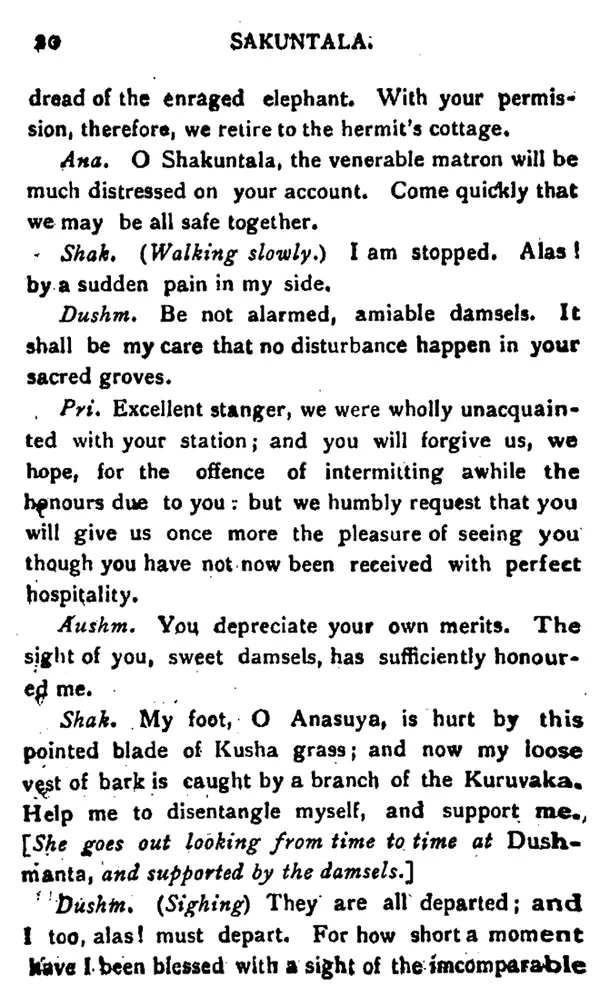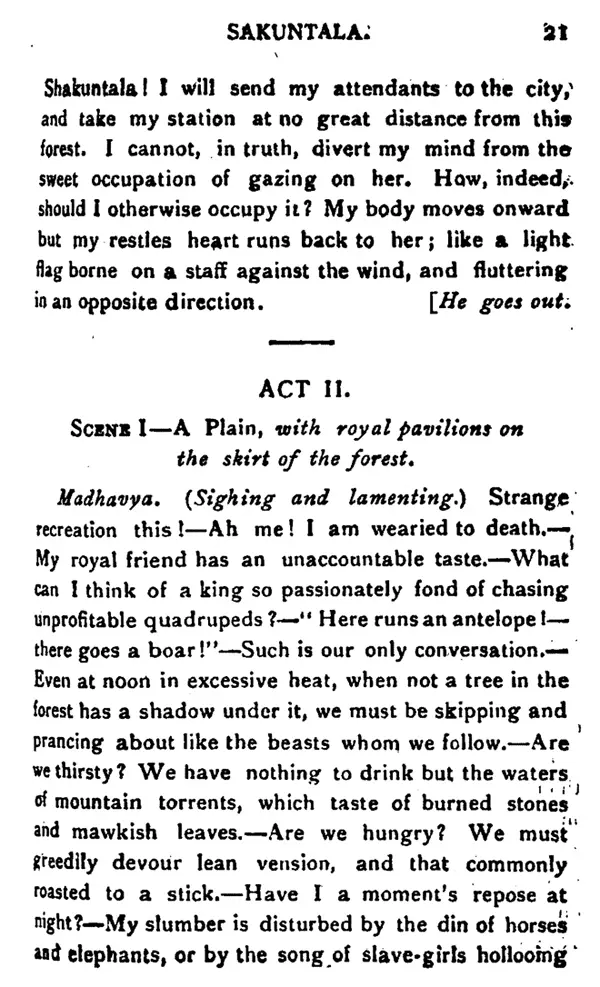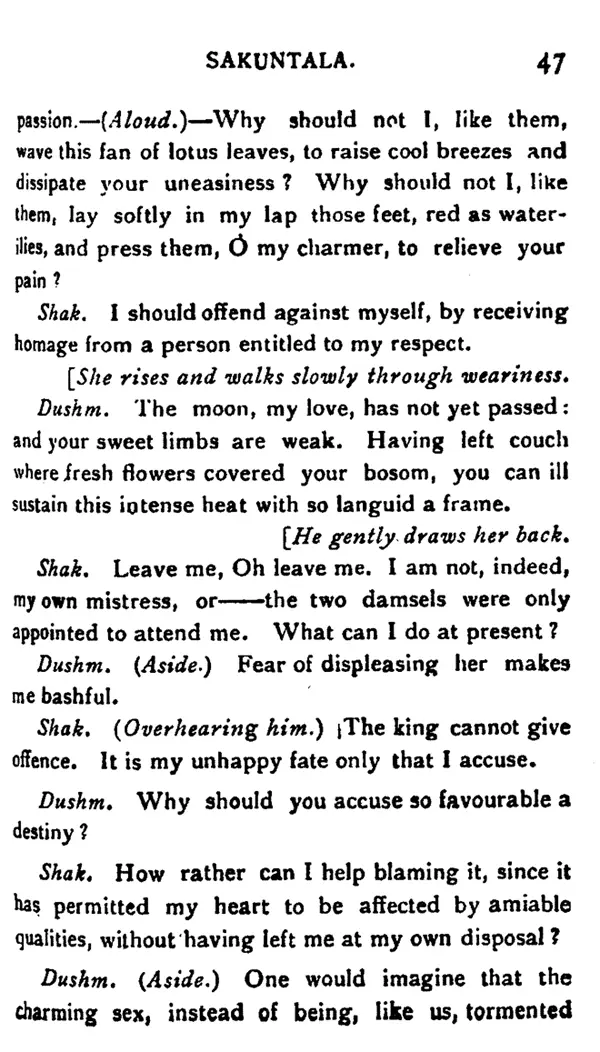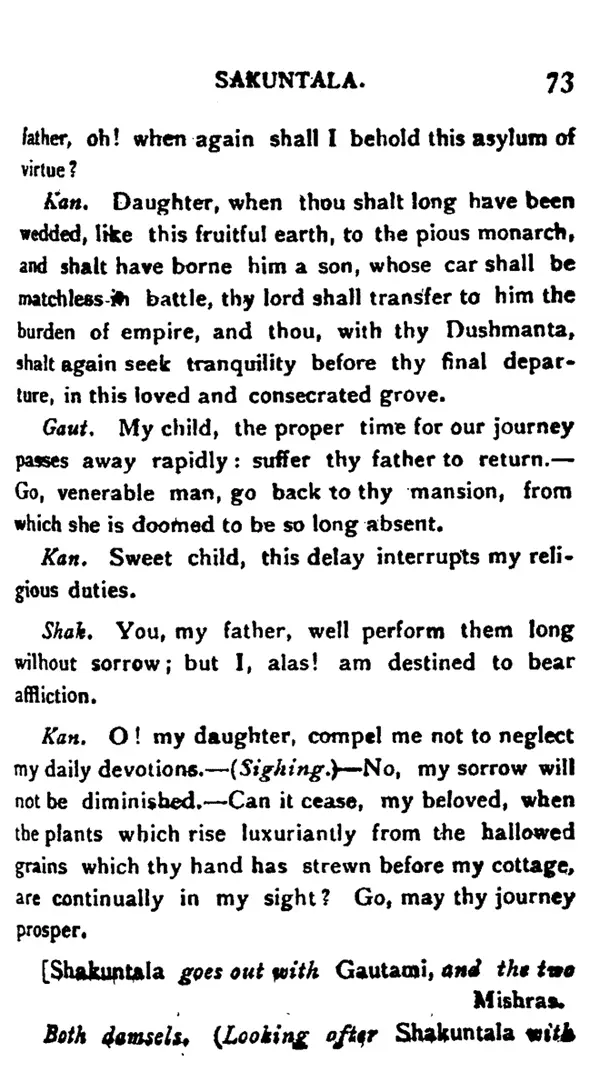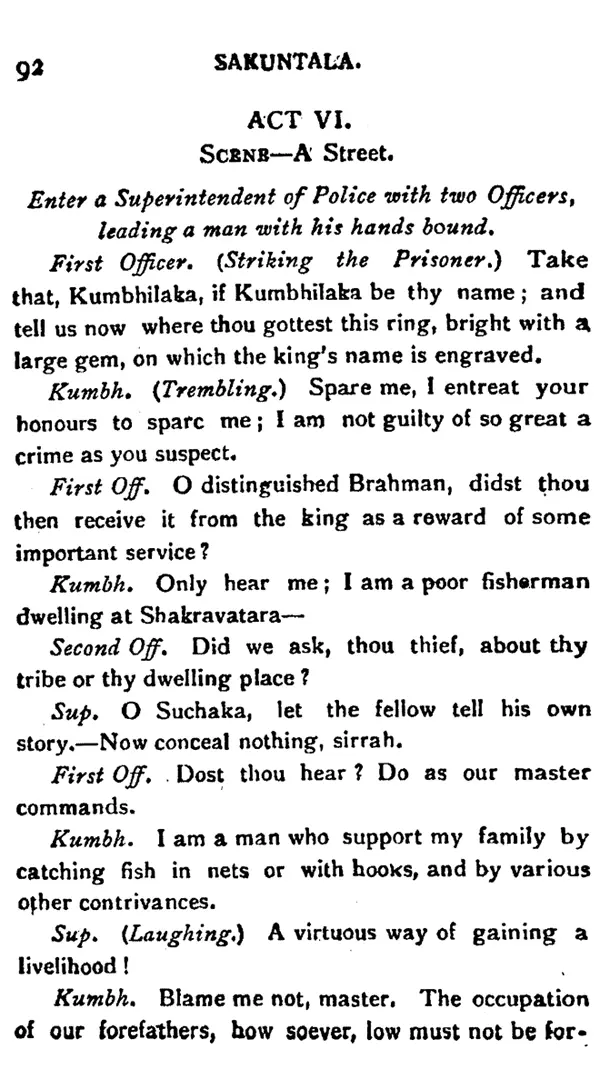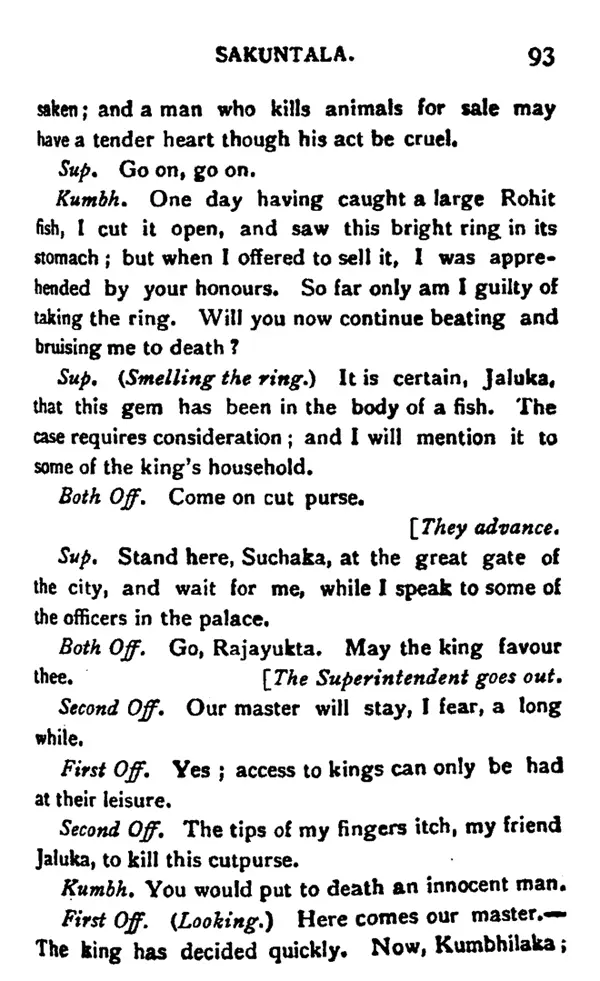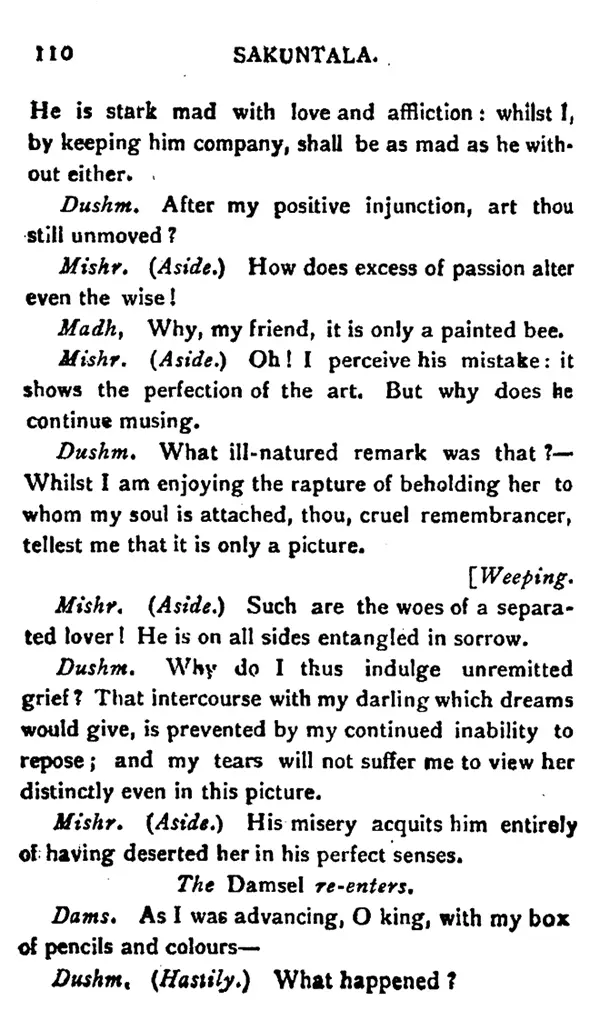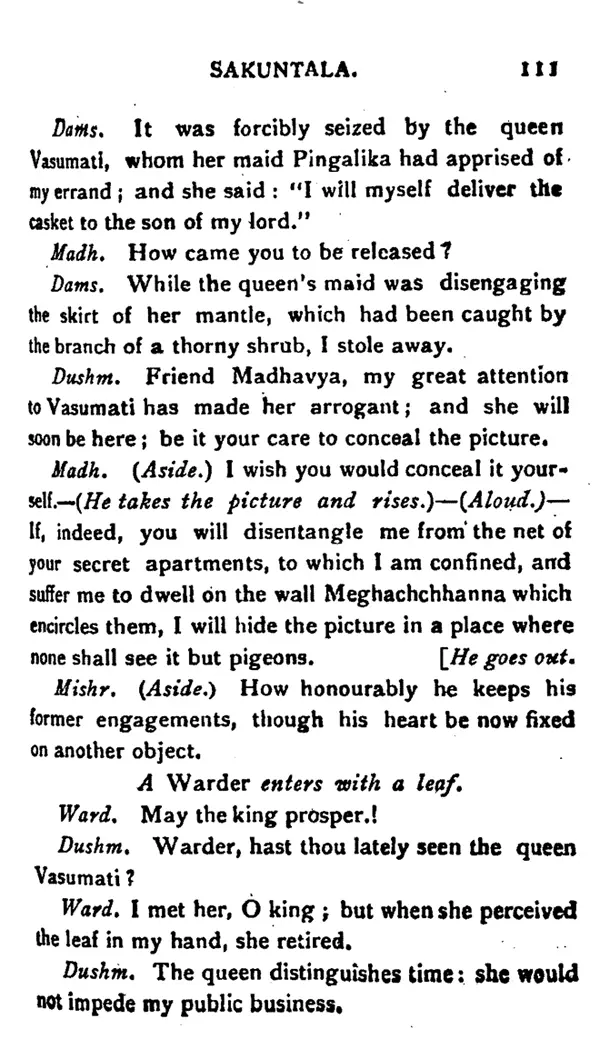
Shakuntala Or The Fatal Ring An Indian Drama
Book Specification
| Item Code: | UBA643 |
| Author: | KALIDASA AND WILLIAM JONES |
| Publisher: | Gyan Publishing House, New Delhi |
| Language: | English |
| Edition: | 2021 |
| ISBN: | 9788121227520 |
| Pages: | 215 |
| Cover: | HARDCOVER |
| Other Details | 9.00 X 6.00 inch |
| Weight | 310 gm |
Book Description
The story of the drama Shakuntala is about the love affair of Shakuntala and Dushyanta. The plot is based upon love, secret marriage, separation of imprecation and reunion of immortal love of Dushyanta and Shakuntala. The theme of the drama is based on the Indian philosophy, "true love is immortal". Kalidasa has shown that while love leads to failure, kindness reaches the completion. The curse plays a vital role which makes Dushyanta to forget everything about Shakuntala. But the supreme form of love is the serene that was sharply followed and got succeeded by Shakuntala. Kalidasa concludes this drama with declaration of Shakuntala's life is a creation of factual love and external beauty that determined true love is immortal. Shakuntala, based on a story from the Mahabharata, represents the high point of ancient Indian drama. The themes of purity of love and patient acceptance of the will of the gods are characteristic of the genre. This drama, Sir William Jones' translation of Kalidasa's play, was first published in Calcutta, followed by European republications in 1790, 1792 and 1796.
Sir William Jones (28 September 1746 - 27 April 1794) was an Anglo-Welsh philologist, a puisne judge on the Supreme Court of Judicature at Fort William in Bengal, and a scholar of ancient India, particularly known for his proposition of the existence of a relationship among European and Indian languages, which would later be known as Indo-European languages. He, along with Henry Thomas Colebrooke and Nathaniel Halhed, founded the Asiatic Society of Bengal in 1784.
IN one of the letters which bear the title of EDI- FYING, though most of them swarm with ridiculous errors, and all must be consulted with extreme diffidence, I met, some years ago, with the following passage:-"In the north of India there are many books, called Nataka, which, as the Brahmanas assert, contain a large portion of ancient history without any mixture of fable," and having an eager desire to know the real state of this empire before the conquest of it by the Savages of the North, I was very solicitous, on my arrival in Bengal, to procure access to those books, either by the help of translations, if they had been translated, or by learning the language in which they were originally composed, and which 1 had yet a stronger inducement to learn from its connection with the administration of justice to the Hindus; but when I was able to converse with the Brahmanas, they assured me that the Natakas were not histories, and abounded with fables, that they were extremely popular works, and consisted of conversations in prose and verse, held before ancient Rajas in their public assemblies, on an infinite variety of subjects, and in various dialects of India: this definition gave me no very distinct idea; but I concluded that they were dialogues on moral or literary topics; whilst other Europeans, whom I consulted, had understood from the natives that they were discourses on dancing, music, or poetry. At length a very sensible Brahmana, named Radhakanta, who had long been attentive to English manners removed all my doubts, and gave me no less delight than surprise, by telling me that our nation had compositions of the same sort, which were publicly represented at Calcutta in the cold season, and bore the name, as he had been informed, of plays. Resolving at my leisure to read the best of them, I asked which of their Natakas was most universally esteemed; and he answered without hesitation, Shakuntala, supporting his opinion, as usual among the Panditas, by a couplet to this effect: "The ring of Shakuntala, in which the fourth act, and four stanzas of that act, are eminently brilliant, displays all the rich exuberance of Kalidasa's genius." I soon procured a correct copy of it, and, assisted by my teacher Ramalochana, began with translating it verbally into Latin, which bears so great a resemblance to Sanskrit, that it is more convenient than any modern language for a scrupulous interlineary version: I then turned it word for word into English, and afterwards, without adding or suppressing any material sentence, disengaged it from the stiffness of a foreign idiom, and prepared the faithful translation of the Indian drama, which I now present to the public as a most pleasing and authentic picture of old Hindu manners, and one) of the greatest curiosities that the literature of Asia has yet brought to light.



